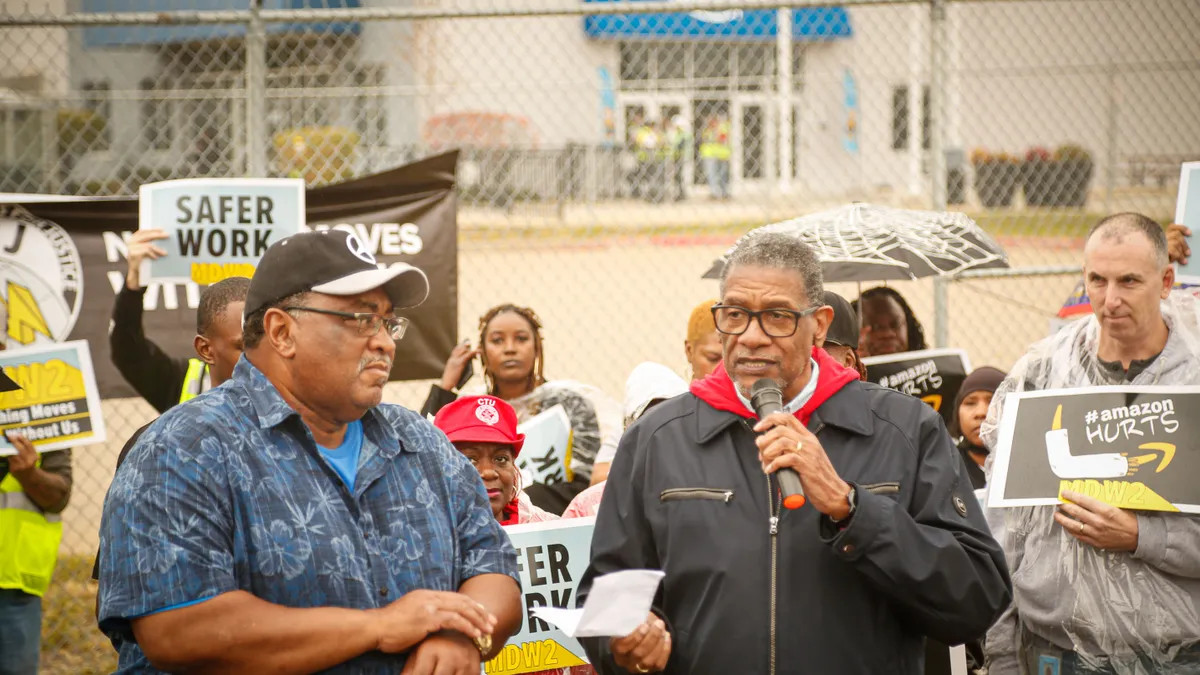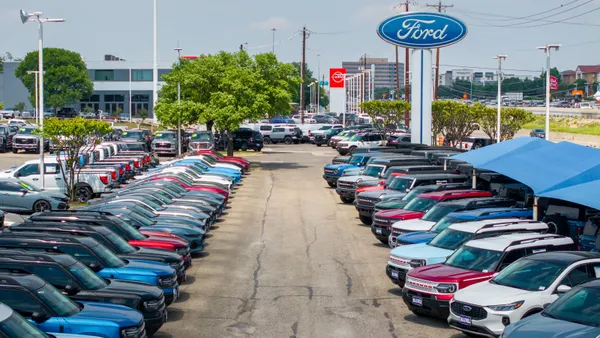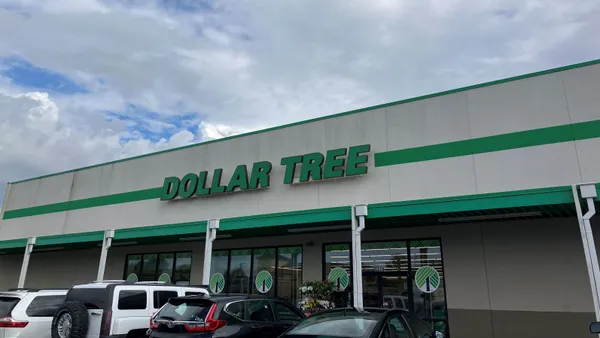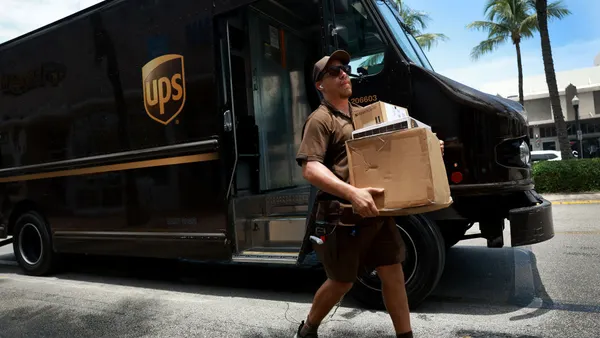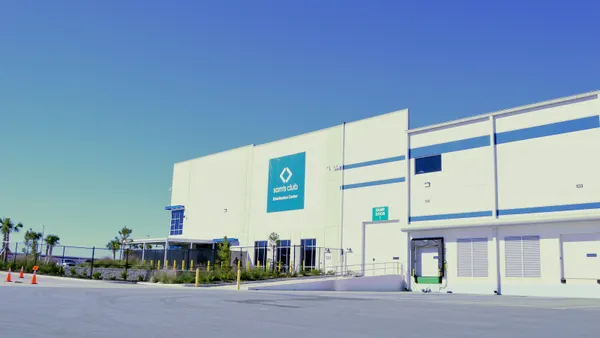Dive Brief:
- About 30 workers at a Joliet, Illinois, Amazon warehouse known as MDW2 on Tuesday walked out, a collective action they are calling “Prime Walkout” according to Warehouse Workers for Justice, a labor advocacy and education center.
- The workers also posted a letter to Amazon CEO Andy Jassy saying they’re exercising their “right to engage in concerted activities for the purpose of mutual aid and protection” under national labor and occupational safety laws and demanding “a safer and healthier workplace and a living wage of $25 per hour.”
- An Amazon spokesperson, speaking by phone, downplayed the action, saying that just 10 workers joined a group gathered at the site during their lunch break. “We value employee feedback and are always listening,” Amazon said in an emailed statement to Retail Dive, noting it is investing $1 billion in front-line employee wage hikes this year.
Dive Insight:
The group’s action comes as Amazon holds its second major Prime sale this year, and the same week that workers at another Amazon warehouse in Albany, New York, begin to vote on whether to unionize.
Amazon’s speedy Prime fulfillment means that the pressure is always on at Amazon’s warehouses, not just during Prime Day, however, according to Marcos Ceniceros, executive director of Warehouse Workers for Justice. The MDW2 plant is one of 10 “cross-dock” facilities that help funnel merchandise to fulfillment centers to enable the Prime promise of at least two-day shipping, he said by phone.
Ceniceros disputed Amazon’s characterization of the turnout. Some Joliet facility workers joined the walkout during their break or came from home because they didn’t have a shift, but even more, including some who he said were too intimidated to participate, are supportive. Warehouse Workers for Justice gathered some 700 signatures from the facility's workforce in support of the pay and workplace requests outlined Tuesday, he told Retail Dive.
In addition to $25 per hour, the group wants Amazon to improve workplace issues involving safety and equitable employment. Sometimes seriously injured workers have been given inadequate medical attention, for example, and racist incidents aren’t properly addressed, which have been recorded in numerous complaints to managers and the Equal Employment Opportunity Commission, Ceniceros said. In response to questions about workplace conditions in Joliet, Amazon said safety is its top priority and that racism is not tolerated in its workplaces. The company also said it has robust safety protocols and more than 8,000 safety professionals.
“Amazon is not only downplaying the turnout, they’re ignoring our demands,” Ceniceros said. “Amazon’s entire business model is on the backs of these warehouse workers. They’ll tout that they pay above minimum wage, but it’s not nearly a living wage.”
In an email the company said its front-line employees in customer fulfillment and transportation on average earn $19, within a range of $16 to $26 per hour, depending on the job and what is paid locally for comparable work. A spokesperson declined to say how much workers at the Joliet site are paid.
According to the living wage calculator from the Massachusetts Institute of Technology, a living wage for the Joliet area would be over $19 per hour for a single adult without children, close to $36 per hour for a single adult with one child, or just over $25 per hour in households with two children if two adults are working.



